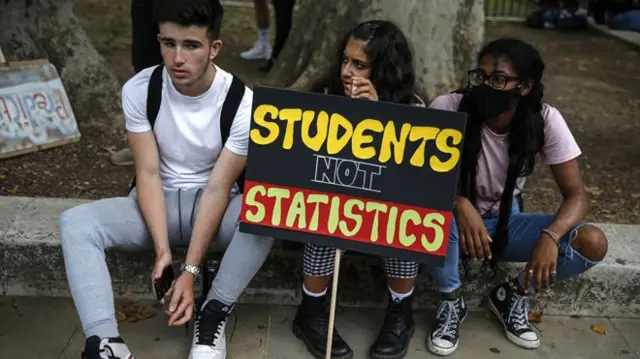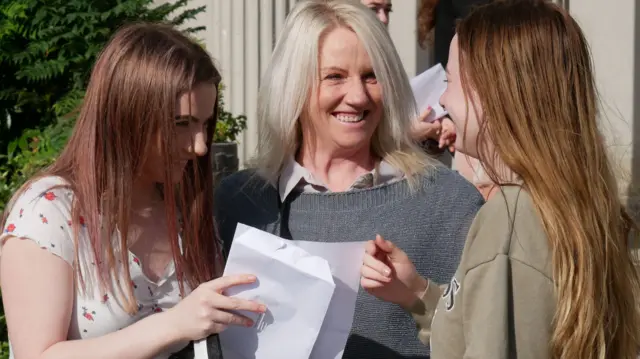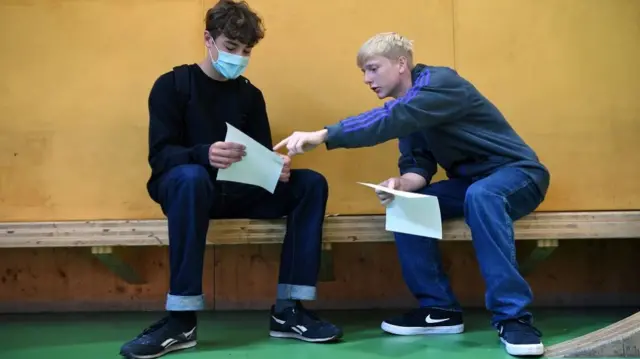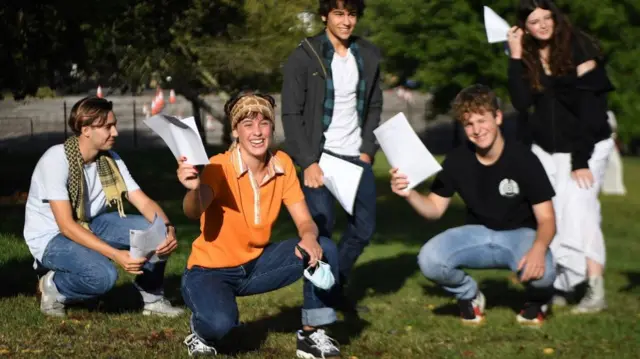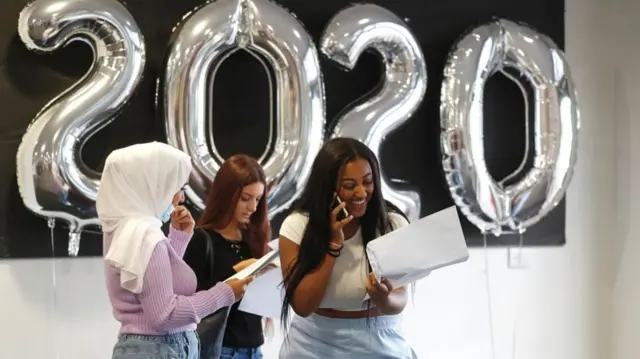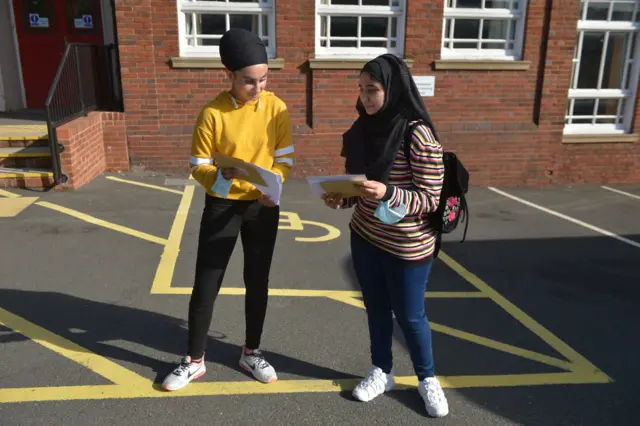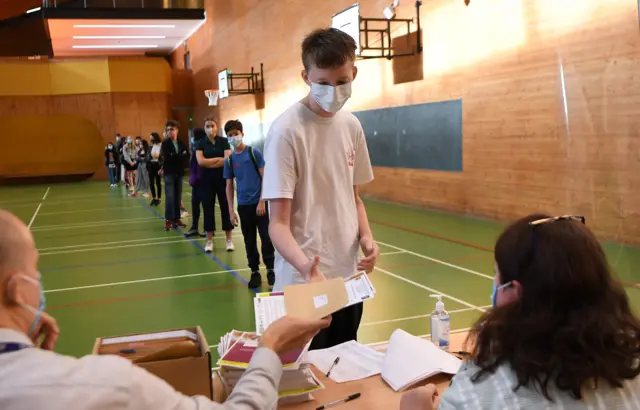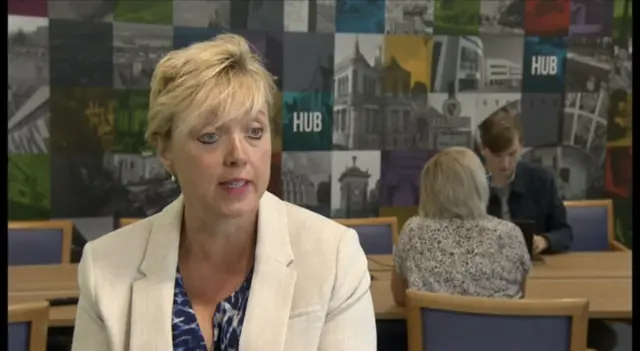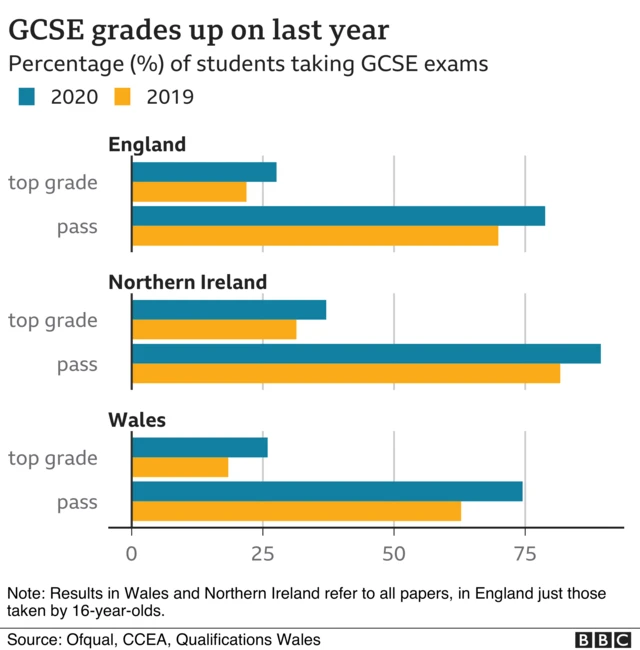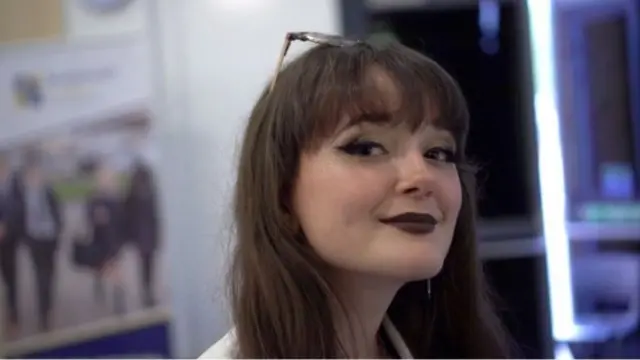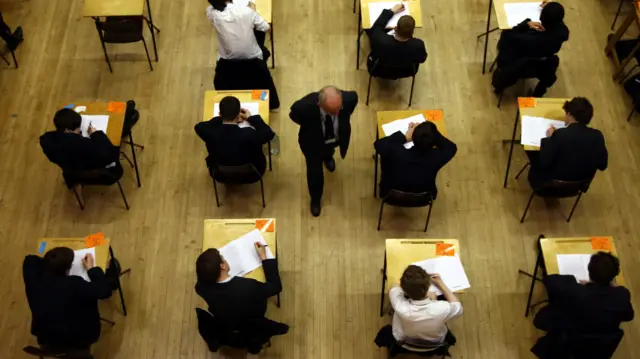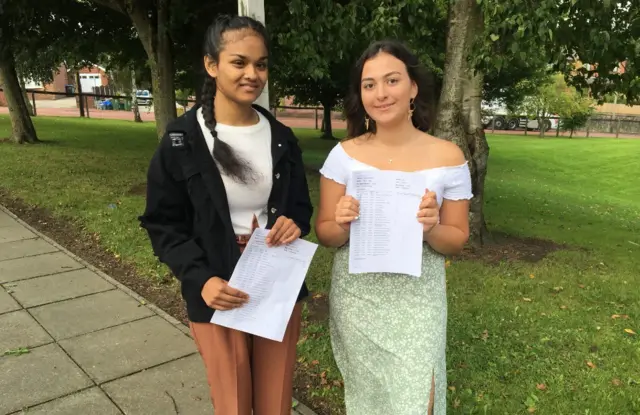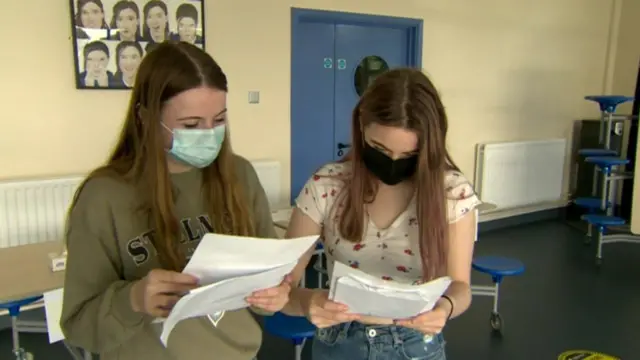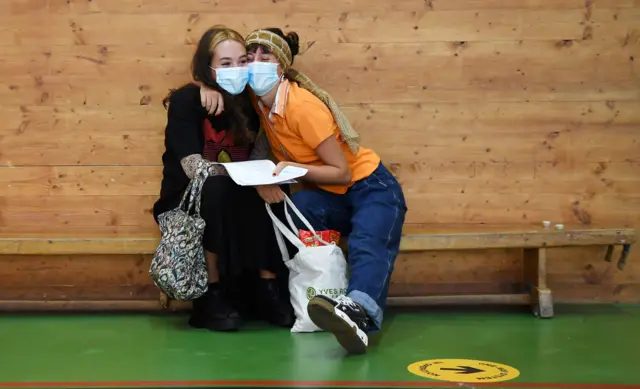Afternoon round-up - thanks for joining uspublished at 16:00 BST 20 August 2020
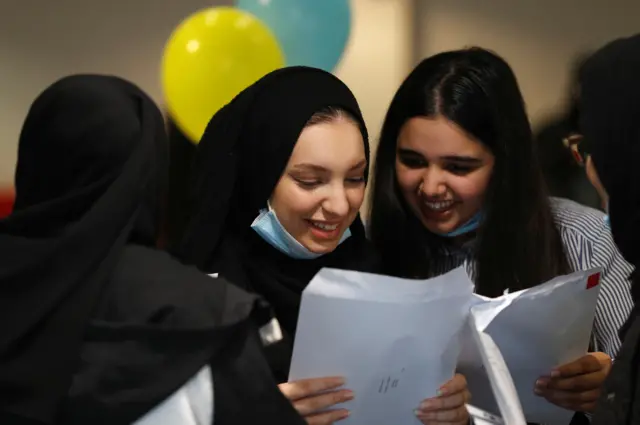 Image source, Reuters
Image source, ReutersEngland, Wales and Northern Ireland saw better results from the grades assessed by schools
We're bringing our live coverage to a close, on the day when students who lived through an extraordinary school year collected their GCSE results. Here's what we learned:
- Grades in England rose significantly, with 78.8% of papers rated grade 4 or above compared 69.9% in 2019. It came after the government scrapped an algorithm to calculate students results in the absence of exams, and opted to use grades assessed by schools
- In Wales, which continues to use letter grades for GCSE, almost three-quarters of entries - 74.5% - were awarded A* to C grades, up from 62.8%
- And in Northern Ireland, almost nine out 10 results - 89.4% - were A* to C grades, up from 82.2% the previous year
- Schools Minister Nick Gibb confirmed he was warned about problems with the algorithm in July, but he said he was "reassured" by Ofqual that poorer students would not be penalised
- Ofqual's algorithm is now under investigation by the national statistics regulator over claims that the process used to test its predictive ability was fundamentally flawed
- Scottish Conservative leader Douglas Ross has refused to defend Education Secretary Gavin Williamson, saying he should "reflect" on why England did not learn from Scotland's experience a week earlier
- And universities in England will offer all students with the right grades places on their first-choice courses, the government said, although some may have to defer for a year. Universities said there were still "significant challenges" and funding issues
